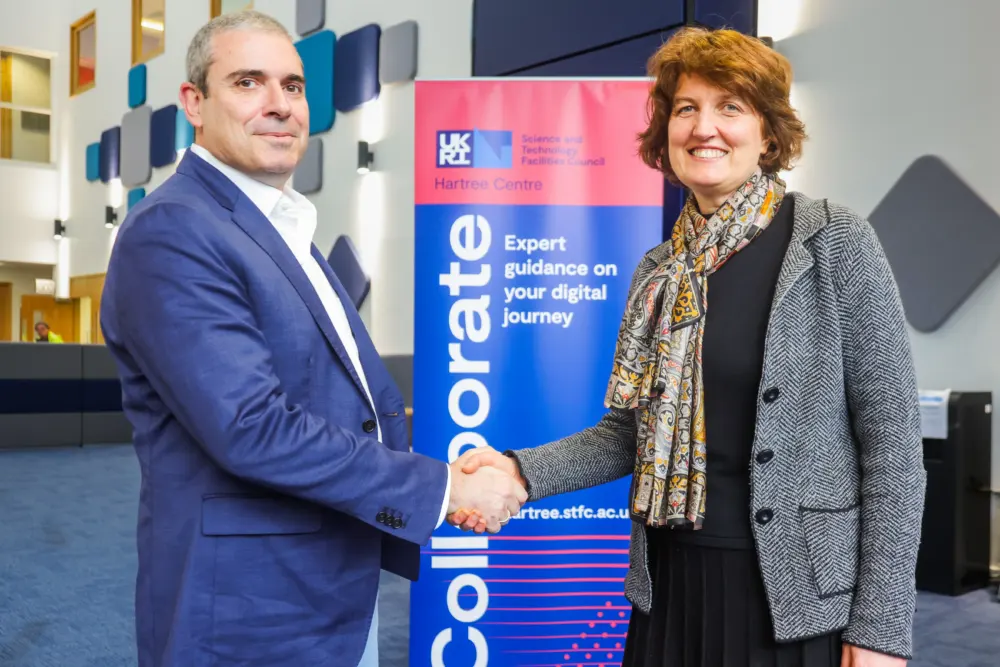
Lenovo building ThinkSystem Neptune supercomputer in UK for AI research
Lenovo is building a new supercomputer for research into AI. The Lenovo ThinkSystem Neptune will be capable of performing almost 45 quadrillion floating point operations (calculations) per second.
The UK’s Science and Technology Facilities Council (STFC) has signed a deal with Lenovo to build and install the 44.7 petaflop system at the Hartree Center in Cheshire.
According to the STFC, it will be ten times more powerful than its predecessor, Scafell Pike – but will use less electricity per unit of performance thanks to direct water cooling.
The Neptune supercomputer will use innovative warm water cooling that can reduce energy demands by up to 40% while boosting performance by up to 10%.
The Lenovo Neptune supercomputer will be installed later this year, according to Lenovo.
What is the Neptune supercomputer for?
Lenovo says the GPU-based supercomputer will be “strategically positioned to contribute to discovery-led industrial research” on “solutions to global challenges”.
These challenges might include weather and climate modelling, cleaner energy initiatives, drug and health research, automotive advancements and legal applications.
“From advanced modelling and simulation in various scientific disciplines to pioneering work in AI and machine learning,” said Noam Rosen, Lenovo’s EMEA Director for HPC/AI, “this new power-efficient supercomputer will be a cornerstone for innovation, pushing the boundaries of big data and AI technologies to bolster the UK industry’s global leadership in responsible and ethical technology adoption.”
Professor Kate Royse, Director, STFC Hartree Centre added: “With our new supercomputer we will be able to support UK industry in the use of big data and AI technologies to enable UK businesses to take a leading role internationally on the responsible adoption and exploitation of AI technology.”
New AI era for Hartree Centre
Building started last year on a £30 million facility to house the planned supercomputer.
It is being installed as part of Hartree National Centre for Digital Innovation (HNCDI) program, a £210 million scheme supporting business and public bodies adopting artificial intelligence. Among those involved are the UK Atomic Energy Authority, the Met Office, Unilever and Rolls Royce.
Named for English mathematician and physicist Douglas Rayner Hartree, the Hartree Centre was founded in 2012 backed by hundreds of millions of pounds in government funding. It’s designed for academics and industry to research cutting-edge technology such as supercomputing, cognitive computing and big data analytics.
Another subject with big potential is quantum computing. Professor Royse recently identified hybrid workflows, combining high-performance computing, AI and quantum, as a game-changer for applications like drug discovery.
NEXT UP

Ryan Beal, CEO & Co-Founder of SentientSports: “Sports generate some of the richest datasets globally”
We interview Ryan Beal, CEO & Co-Founder of SentientSports, a startup using AI in fan engagement and athlete protection on social media.

Paris 2024: The greenest games ever
How the Paris 2024 Olympic Gamers organisers have lived up to their promise that this is the greenest Olympics ever

Salesforce, Workday team up to launch AI employee service agent
Salesforce and Workday have marked their new strategic partnership with the launch of an AI-powered assistant to handle employee queries.

